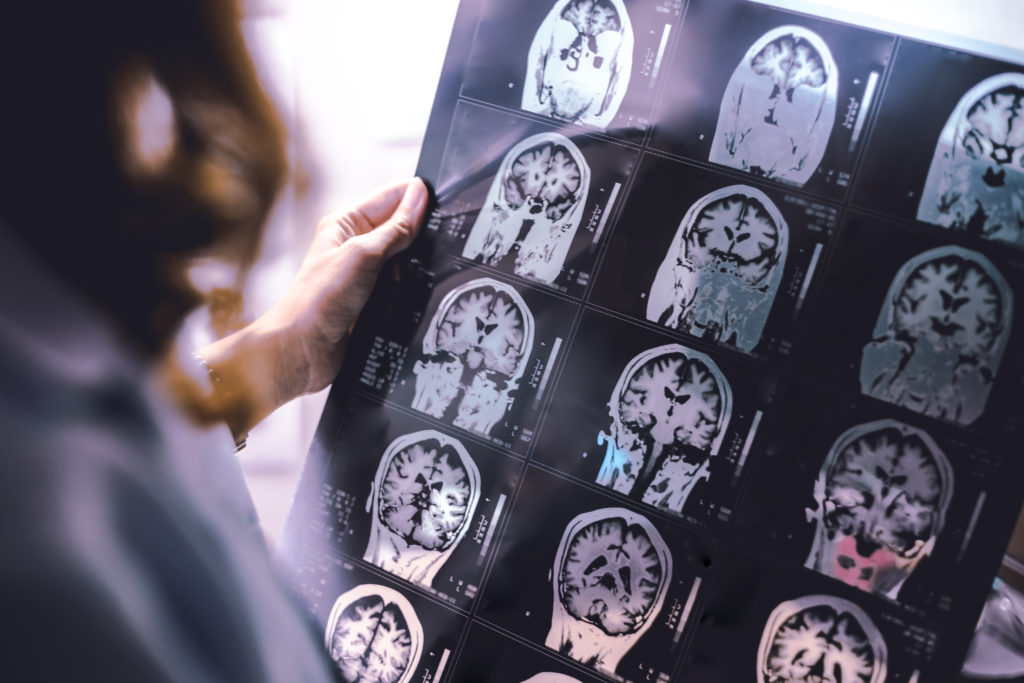
Well, this is a question that an international collaboration of researchers coordinated by the University of Cambridge set out to answer. They analysed over 125,000 brain scans from over 100 studies and have built brain charts form a 15-week old foetus to a hundred year-old. This gives new unprecedented insight into the changes in the human brain over a lifetime. Some key milestones in brain development are:
-
- The volume of grey matter (brain cells) increases rapidly from mid-gestation onwards, peaking just before we are six years old. It then begins to decrease slowly.
- Grey matter volume in the subcortex (which controls bodily functions and basic behaviour) peaks in adolescence at 14-and-a-half years old.
- The volume of white matter (brain connections) also increased rapidly from mid-gestation through early childhood and peaks just before we are 29 years old.
- The decline in white matter volume begins to accelerate after 50 years.
This is an amazing technical feat and is an incredibly useful clinical tool but also just gives us fascinating insights into the brain and what happens to our own brains over our lifetime.
I now know I need to look after my white matter, gulp!
Reference:
R. A. I. Bethlehem, J. Seidlitz, S. R. White, et al.
Brain charts for the human lifespan.
Nature, 2022
DOI: 10.1038/s41586-022-04554-y
More Quick Hits
Experts Don’t Give the Best Advice – Just More of It
Quick HitsDaily brief research updates from the cognitive sciences k, that is a massive generalisation, and the research didn’t actually look at experts in the sense that we understand it. It is nevertheless insightful and does indeed match some of...
Groovy Music Improves Brain Performance
Quick HitsDaily brief research updates from the cognitive sciences et into the groove… or so sang Madonna with her hit single in 1985. Little did she know at the time but getting into the groove certainly does seem to be beneficial for you - not to...
Even Moderate Alcohol Consumption Linked to Brain Decline
Quick HitsDaily brief research updates from the cognitive sciences he tide seems to have turned on alcohol. Though we have always known that excessive alcohol consumption is negative there were for a long time inconsistencies with the research into...
Flu Vaccination Dramatically Lowers Risk Of Alzheimer’s
Quick HitsDaily brief research updates from the cognitive sciences am always interested in headlines that are related to brain health. And though Alzheimer’s is a long way off for (hopefully) me, this still struck me as interesting. For me this...
How Mindfulness Meditation Reduces Pain
Quick HitsDaily brief research updates from the cognitive sciences indfulness meditation has been shown to be beneficial for many things such as lowering stress, increasing wellbeing but also making better decisions and being less biased. Not bad....
You Smell Like Your Friends
Quick HitsDaily brief research updates from the cognitive sciences e all know that dogs like to sniff each other - often in "delicate" parts of their body. We also know that many other animals have very good sense of smells. But in our daily lives,...
Social Interactions Define Your Sense of Purpose
Quick HitsDaily brief research updates from the cognitive sciences aving a sense of purpose is a pretty good thing to have because it seems to correlate with multiple health and life satisfaction measures. If you have a healthy sense of purpose you...
Being “Hangry” Really Is A Thing
Quick HitsDaily brief research updates from the cognitive sciences o, scientists have now proven that being “hangry” is real thing. What took them so long? Well, first of all things which seem intuitively right such as the weather making pain worse...
Reward Drives Aggressive Behaviour Against “Others”
Quick HitsDaily brief research updates from the cognitive sciences s vs. them is known as in-groups vs. out-groups in psychology. This is the well-known effect of people being loyal to their own groups and being competitive and often aggressive to...
Low Oxygen Impairs Decision-Making
Quick HitsDaily brief research updates from the cognitive sciences ast year I reported on how pollution and bad air in offices correlates with lower performance and productivity. Something business should take note of. A study out of the University...










